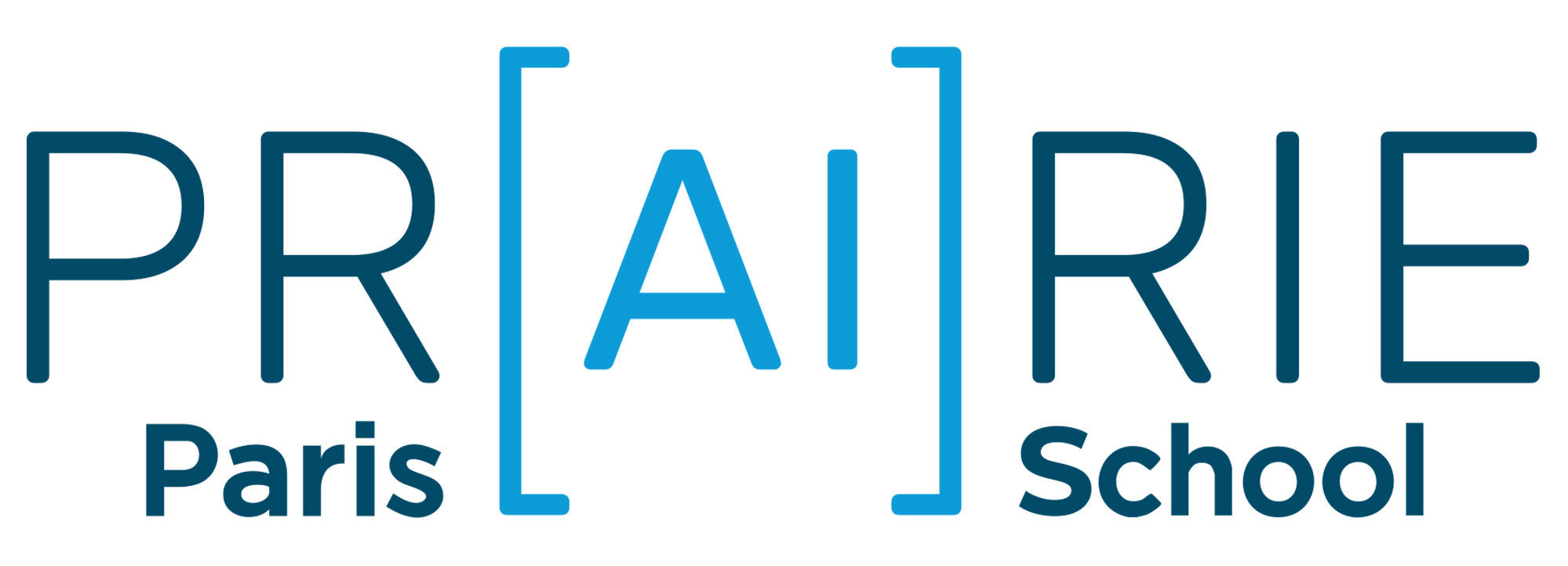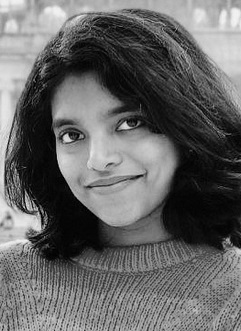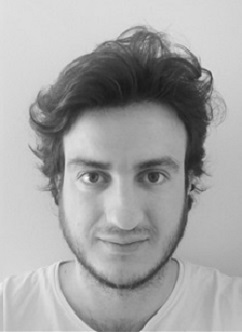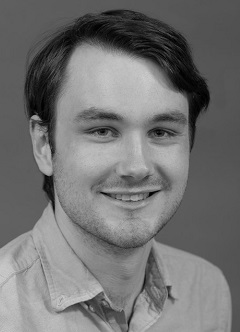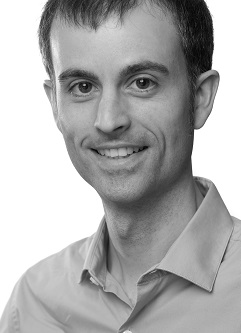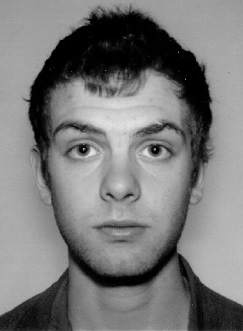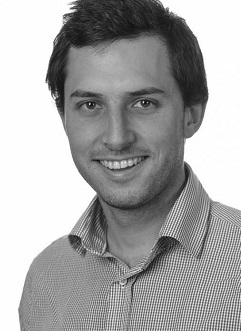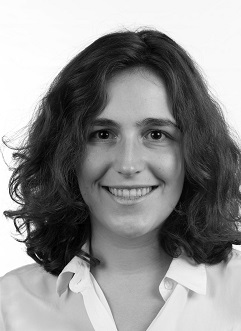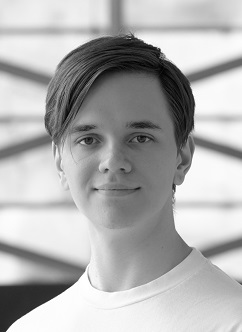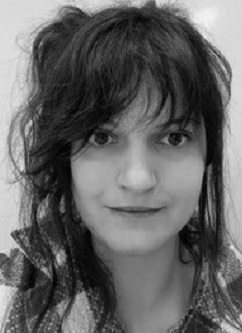SCHAIPP Fabian
fabian.schaipp [at] inria.fr
Short bio
PhD, Technical University of Munich
Research project
Robust and adaptive training algorithms.
Short abstract
Training machine learning models amounts to solving stochastic optimization problems at scale. My research focuses on understanding and improving optimization algorithms, particularly with the aim to design robust and easily tunable methods.
FAVIEZ Carole
carole.faviez [at] inserm.fr
Short bio
PhD, Université Paris Cité
Research project
Diagnosis support of rare genetic diseases: design of diagnosis support algorithms based on hybrid methods combining symbolic artificial intelligence and machine learning.
Short abstract
Rare diseases affect approximately 400 million people worldwide. Many of them suffer from delayed diagnosis. In this context, the objective is to integrate expert knowledge about the disease within machine learning models reusing patient data from electronic health records (EHR) to design a diagnosis support system. The model, that is meant to be used in a clinical context, must be reliable, explicable, and interoperable with EHRs.
ANDREW Judith Jeyafreeda
judithjeyafreeda [at] gmail.com
Short bio
PhD, Université de Caen, Normandie
Research project
Extracting Temporal relations within clinical text documents.
Short abstract
Clinical documents have a mentions of phenotypes with the time they have been identified in a patient. These time frames are not always explicitly stated, thus automatic identification is a challenging task. However, identifying and constructing a time frame from the identification of a phenotype and its evolution can be very useful to further clinical research. I will be developing AI models to automatically identify temporal relationships between phenotypes and time.
ZAHARIAS Paul
Muséum national d'Histoire naturelle
paul.zaharias [at] mnhn.fr
Short bio
PhD at the Muséum national d’Histoire naturelle (MNHN)
Research project
Evaluation and design of fast statistical branch support methods for phylogenetic gene/species tree reconstruction.
Short abstract
Statistical support in phylogenetic tree reconstruction is essential to interpret evolutionary relationships. My goal is to design scalable statistical supports for large phylogenetic and phylogenomic datasets to overcome the limitations of current methods.

fbtmdn
BOUDABOUS Safa
Université Paris-Dauphine-PSL
safa.boudabous [at] dauphine.psl.eu
Short bio
PhD, Computing, Data and AI, Institut Polytechnique de Paris
Research project
Detection of micro-arousal and desaturation events from heart rate in apneic patients.
Short abstract
We will work on defining a deep learning model for sleep micro-arousal and desaturation events detection from heart rate. As heart rate increase is a characteristic cardiac autonomic response to micro-arousal and desaturation, we will be using heart rate signal as a surrogate to full Polysomnography signals.
PEREZ Manolo
Muséum national d'Histoire naturelle
manolo.fernandezperez [at] mnhn.fr
Short bio
PhD in on Evolutive Genetics and Molecular Biology – Federal University of Sao Carlos (UFSCar)-Brazil
Research project
Computational and machine learning-based methods in phylogenetics.
Short abstract
Deep Learning frameworks have increasingly been applied to phylogenetics, phylodynamics, and macroevolution due to their flexible and data hungry nature. Recent DL implementations have shown encouraging performance, with higher speed and accuracy than similar methods, when used with phylogenetic information to compare Birth-Death diversification models and estimate parameters for epidemiological data. Here, we propose a new DL framework that allows the incorporation of distinct strategies for simulating and representing phylogenetic information.
GILMARTIN Emer
emer.gilmartin [at] inria.fr
Short bio
- Ph.D, Trinity College Dublin, Ireland. M.Phil, Trinity College Dublin, Ireland
- B.E (Mech), NUIG, Ireland
Short abstract of the research project
We are working with groups in Korea to understand and model the effects of interlocutor personality in dialogue. We are building a new model of ‘interpersonality’, how personality related behaviours of each participant in a conversation affect the conversation as a whole.
SUSMANN Herbert
Université Paris Dauphine-PSL
Herbert.susmann [at] dauphine.psl.eu
Short bio
PhD, Biostatistics, University of Massachusetts Amherst
Research project
Predicting emergency room arrivals in the Île-de-France region.
Short abstract
We are studying the use of modern machine learning techniques to predict arrivals to emergency rooms and subsequent hospitalizations in Île-de-France. We are particularly interested in predictions methods that can provide statistically accurate characterizations of uncertainty.
TRIGG Scott
Observatoire de Paris-PSL
scott.trigg [at] obspm.fr
Short bio
MA (Mathematics), MA (History of Science), PhD (History of Science), University of Wisconsin-Madison
Research project
EIDA – Editing and analysing historical astronomical diagrams with artificial intelligence.
Short abstract
The EIDA project is applying deep learning for computer vision to develop new algorithms and tools for analysis of the material and epistemological aspects of diagrams in premodern astronomy on a global scale, and inventing new standards for natively-digital critical editions of diagrams.
EL JURDI Rosana
Institut du Cerveau – Paris Brain Institute
rosana.eljurdi [at] icm-institute.org
Short bio
PhD from the University of Rouen Normandie
Research project
Deep Learning for Brain Imaging:
- Validation of Deep Learning Segmentation Models
- Segmentation and Survival analysis of Lymphoma in Brain MRI
Short abstract
Reporting standard errors and confidence intervals is crucial in medical image segmentation research, as accurately measuring the level of improvement achieved is challenging. Current methods often report empirical standard deviation, which is biased due to data inter-dependency between folds. In this project, we focus on estimating confidence intervals in order to determine the scientific contribution made by improved performance over the baseline using experiments on 3D image segmentation, providing a more accurate and reliable measure of performance.
BACHTIS Dimitrios
École normale supérieure - PSL
dimitrios.bachtis [at] phys.ens.fr
Short bio
PhD, Swansea University
Research project
Machine learning and the renormalization group.
Short abstract
Guided by insights from the theory of disordered systems, and statistical field-theoretic techniques, we aim to further solidify connections between machine learning and the renormalization group. The project will enable us to further our understanding of neural networks and provide machine-learning enhanced
computational advances to problems of physics.
BARBIER-CHEBBAH Alex
École Normale Supérieure - PSL
alex.barbier-chebbah [at] pasteur.fr
Short bio
PHD at Sorbonne University
Research project
Multi-Armed Bandit model.
Short abstract
My main research interests are random walks theory and sequential learning, focusing on their connections to decision-making task in complex environment. We combine statistical physics, Bayesian inference, information theory and numerical simulation to both probe learning procedure in insect behavior, but also to design lightweight algorithms able to mimic such procedures. In particular, relying on infotaxis methods, we develop a new class of multi-armed bandit (MAB) algorithms to achieve optimal performance at all timescales of the sequential learning procedure.
BONNAIRE Tony
Machine learning and statistical physics
École Normale Supérieure - PSL
tony.bonnaire [at] ens.fr
Short bio
PhD in Astrophysics at Université Paris-Saclay
Research project
Machine learning and statistical physics.
Short abstract
My current research focuses on understanding the dynamics of simple neural networks and particularly how gradient descent can achieve good generalization, especially when initialized randomly, in high-dimensional, rough and non-convex landscapes. For this purpose, I use methods coming from theoretical physics, and more precisely the statistical physics of disordered systems, to obtain asymptotic success conditions for these methods but also to study the topological properties of the random landscapes.
GOYENS Florentin
florentin.goyens [at] dauphine.psl.eu
Short bio
PhD in mathematics at the University of Oxford
Research topic
Continuous optimization.
Short abstract
Most of my research is related to continuous nonconvex optimization. I am particularly interested in optimization problems with constraints, such as smooth manifolds; and second-order methods. I consider applications in numerical analysis and machine learning.
PADMANABHA Anantha
anantha.5491 [at] gmail.com
Short bio
PhD, Insitute of Mathematical Sciences, Chennai, India
Research project
Query evaluation over inconsistent databases.
Short abstract
We look at the dichotomy conjecture of evaluating boolean conjunctive queries over inconsistent databases with self joins.
FERMANIAN Adeline
adeline.fermanian [at] mines-paristech.fr
Short bio
PhD in Statistics, Sorbonne Université
Research project
High-dimensional inference in genomic data.
Short abstract
Our goal is to propose new efficient procedures for high-dimensional inference, motivated by applications to high-dimensional genomic data. More specifically, we are interested in identifying regions of the genome associated with a phenotype, through procedures that provide p-values, typically via post-selection inference procedures.
MISCHENKO Konstantin
konsta.mish [at] gmail.com
Short bio
PhD from KAUST, supervised by Peter Richtarik
Research topic
Optimization for machine learning.
Short abstract
I design new optimization algorithms for machine learning and study their convergence. I am particularly interested in stochastic methods, adaptivity, distributed training, and federated learning.
COHEN-SOLAL Quentin
Université Paris Dauphine-PSL
quentin.cohen-solal [at] dauphine.psl.eu
Short bio
PhD at the University of Caen
Research topic
Reinforcement learning in games.
Short abstract
This postdoc focuses on the study and improvement of learning and planning algorithms in games.
AYADI Manel
manel.ayadi [at] dauphine.eu
Short bio
PhD in Computer Science at LAMSADE – Paris-Dauphine
Research project
How does changing the voting system and the electoral district boundaries impact the outcome of the French legislative elections?
Short abstract
The aim of the project is to study the impact of changing the voting system (mixed electoral system, proportional representation …) and the electoral district boundaries on the outcome of the French legislative elections of 2017.
BARRÉ Chloé
chloe.barre [at] pasteur.fr
Short bio
PhD, LPTMC (Laboratoire de Physique Théorique de la Matière Condensée), Sorbonne University, Paris
Research project
Bayesian induction of the behavior of the larva.
Short abstract
Making
decisions is a fundamental feature of animal behavior. Nevertheless, there
remains a large knowledge gap in linking neural architecture and behavioral
response. To bridge this gap, targeting individual neurons and having a simple
read-out of their activity is crucial, and Drosophila larvae are ideal
organisms for such an approach. My work is part of a larger project to explore
the relationship between neural network dynamics and decision making in
Drosophila larvae. I use Bayesian induction techniques and physical modeling to
understand this relationship.
By
combining video measurement experiments of larval behavior with advances in
modern optogenetics that allow the activation/inactivation of individual
neurons, a database of millions of larvae responding to the activation of
single neurons has been constructed. Although a machine learning approach that
projects larval videos into complex behavioral dictionaries has been developed,
some images remain ambiguous and the corresponding behavior is therefore poorly
detected. To improve behavior detection we describe the shape of the larva
using insights from solids mechanics. Using this physical model, we perform a
Bayesian induction to find parameters that describe the behavior of the larvae
in a more robust way.
Once the behaviors are properly detected and quantified, we want to detect all possible responses and modulations induced by the activation or inactivation of a neuron. We have written a simplified model that describes the dynamics and sequences of behaviors. With Bayesian inference I learn the parameters of my model and with a generative model and theses parameters I can recreate virtual larvae. These virtual larvae made it possible to separate neural responses between those provoking simple and immediate actions from those generating complex behaviors. It is thus possible to group neurons in terms of response.
By combining the techniques of biologists with probabilistic analysis techniques (including Bayesian inference), we can identify behavioral changes due to the activation/inactivation of neurons and thus will allow us to infer causal relationships between neural activity and behavioral patterns, and uncover how behavior emerges from activity in the connectome.
